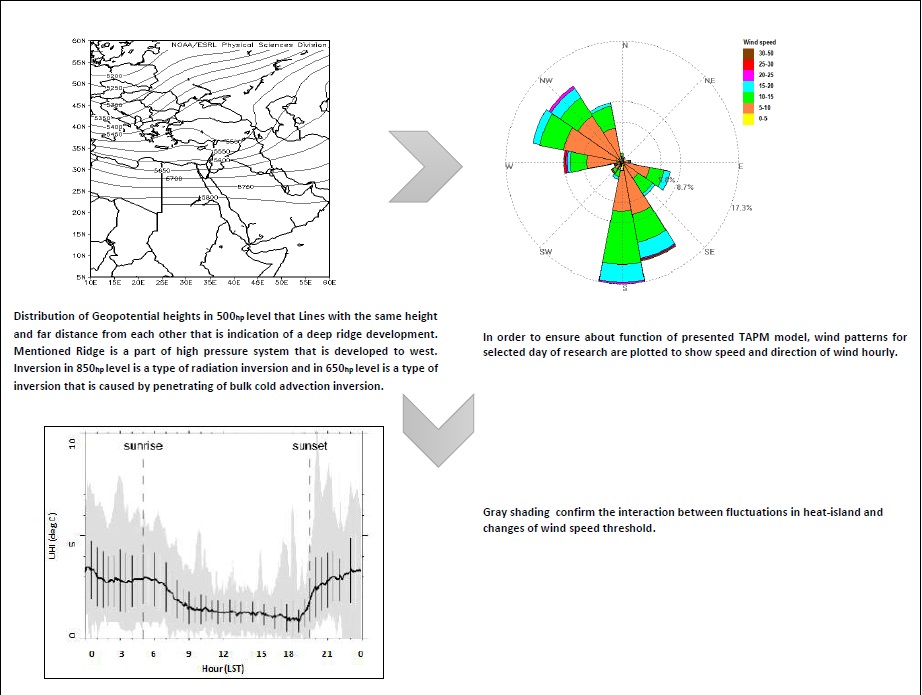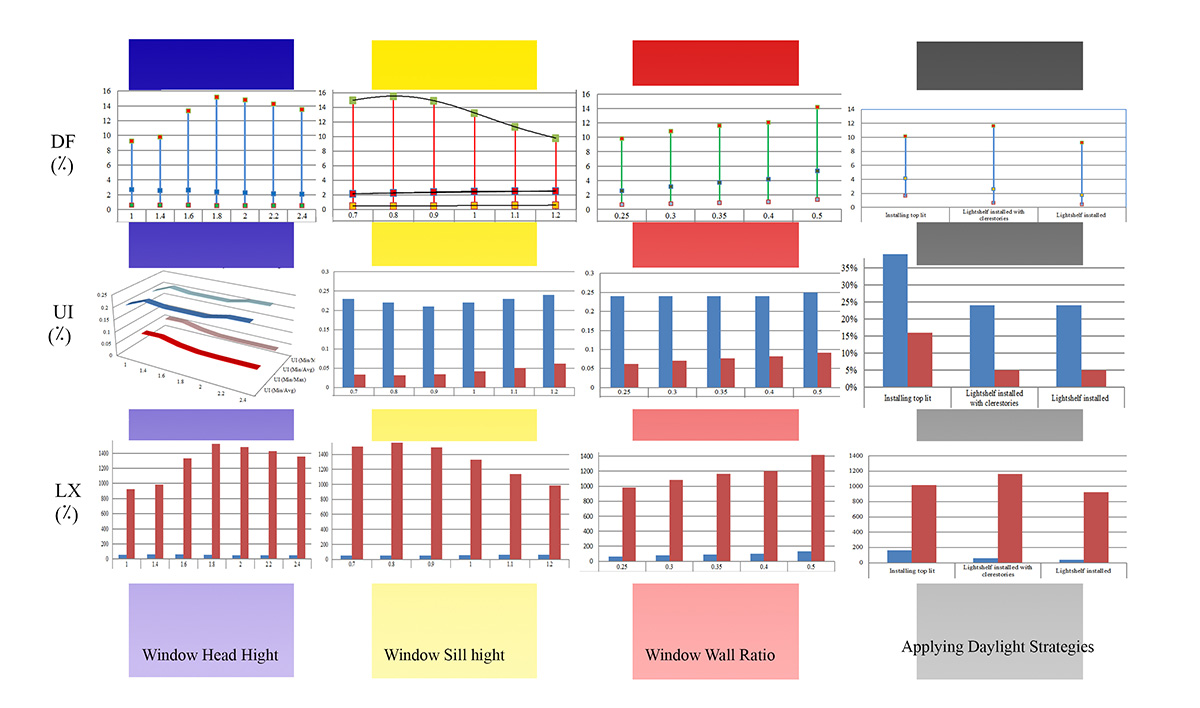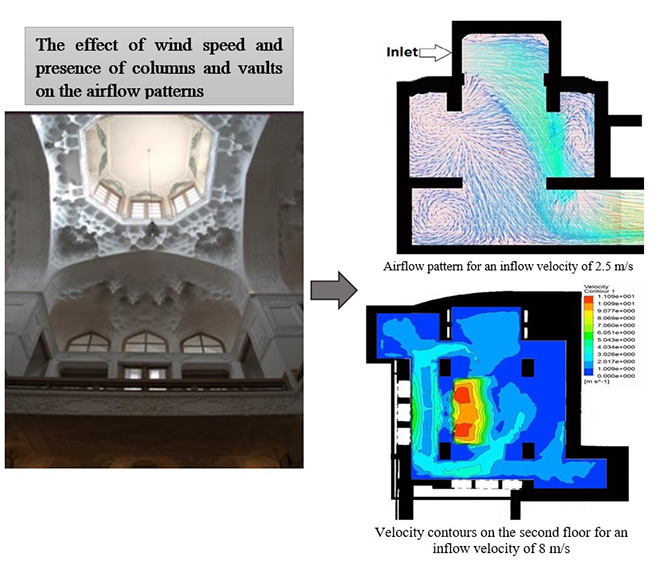Thu, Apr 3, 2025
[Archive]
Volume 26, Issue 1 (2016)
Abstract
|
Full-Text (PDF)
| Graphical Abstract
| Highlights


Highlights:
- Todays, Urban Heat Island phenomena is one of main issue in Bioclimatic architecture studies.
- Applying the air pollution Model (TAPM) with pollution and wind data can help to simulate wind pattern in Karaj city.
- Survey of atmospheric conditions and synoptic map are essential for the principles of bioclimatic architecture.
- There is an severe degradation in air quality at November 25 that caused Urban Heat Island phenomena in Karaj.
Abstract
|
Full-Text (PDF)
| Graphical Abstract
| Highlights


Highlights:
- Window configuration effects on the intensity and uniformity of daylight
- Uniformity increase and glare reduction by light shelves and roof monitors
- Best “daylight performance, better daylight intensity and uniformity via a roof monitor
- Even daylight distribution in sun condition and less overall daylight in overcast, utilizing light shelves
Abstract
|
Full-Text (PDF)
| Graphical Abstract
| Highlights


Highlights:
- Developing map-based methods could pave the way for understanding urbanscape more effectively.
- Cognitive maps often provide an image of physical dimensions and structural perception of urbanscape.
- Narrative maps provide us with deeper layers of individuals’ perception of urban environment.
- Evaluative maps help us to find and measure meanings and concepts of a place.
Abstract
|
Full-Text (PDF)
| Graphical Abstract
| Highlights


Highlights:
- the Quality of Local Cultural Spaces are the necessary environment for social relations and face-to-face communication of residents of urban area.
- physical factors are affective in the quality of cultural spaces.
- Cultural area is a suitable space for creativity and choices, actions and exchange of investment.
- cultural spaces are deemed as places for activity and considered as city places.
- formation of cultural-social selective activity is in direct relationship with quality of these spaces.
Abstract
|
Full-Text (PDF)
| Graphical Abstract
| Highlights


Highlights:
- The RT values and the sound insulation are the main parameters of measurement.
- The auditorium can be defined through the computer simulation utilizing ODEON ver. 4.2.
- The measured parameters used to define the speech intelligibility of an auditorium.
Abstract
|
Full-Text (PDF)
| Graphical Abstract
| Highlights


Highlights:
- Preference for visiting urban parks in different group users was investigated.
- A survey on 275 visitors of two popular urban parks in Gorgan was conducted.
- Visitors rated their preference on four activities: relaxation, socializing, nature involvement, and playing activities.
- Relaxation and nature involvement was chosen as the most preferred activities.
- Socializing and playing had the least preferred activities.
- A significant difference in two variables: relaxation and nature involvement activity was found among marital status and visitor age groups.
Abstract
|
Full-Text (PDF)
| Graphical Abstract
| Highlights


Highlights:
- The question of ornament, surface and appearance in architecture is elaborated.
- Surface can be defined as more than a 2D phenomenon – i.e. with a thickness.
- Semper’s “Principle of Cladding” led to Modernist metaphors, concepts and ideas.
- Though related, “Woven Walls” and “Clothed Walls” are very different.
- Instead of visual barriers or covering layers, surfaces produce architecture.
Abstract
|
Full-Text (PDF)
| Graphical Abstract
| Highlights


Highlights:
- The acoustic quality of an auditorium is elaborated.
- The RT values and the sound insulation are the main parameters of measurement.
- The auditorium can be defined through the computer simulation utilizing ODEON ver. 4.2.
- The measured parameters used to define the speech intelligibility of an auditorium.




